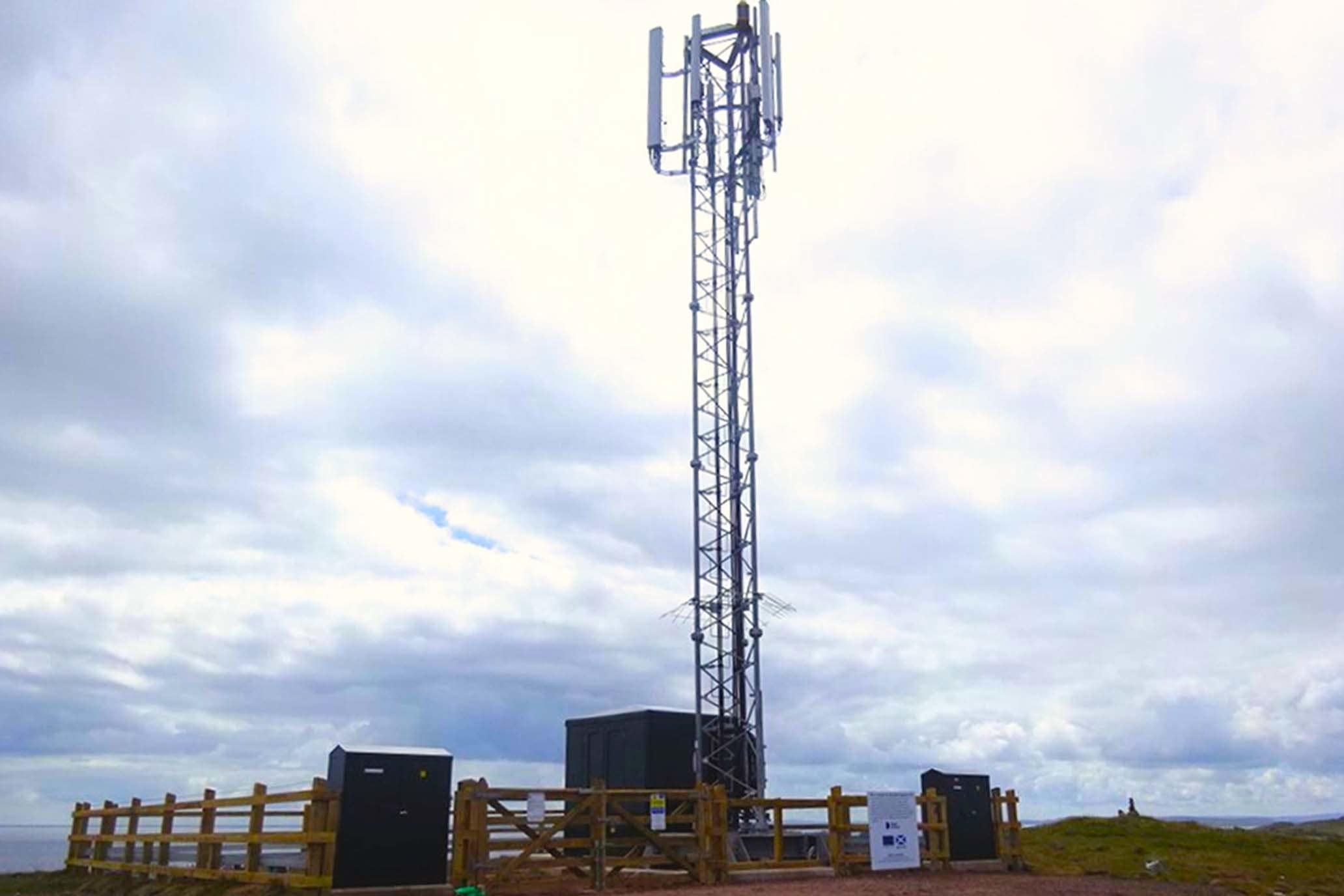Coalition calls for urgent review of mobile mast rollout
Member groups argue the rollout has so far failed to consider whether people living in rural areas really need masts.

Your support helps us to tell the story
From reproductive rights to climate change to Big Tech, The Independent is on the ground when the story is developing. Whether it's investigating the financials of Elon Musk's pro-Trump PAC or producing our latest documentary, 'The A Word', which shines a light on the American women fighting for reproductive rights, we know how important it is to parse out the facts from the messaging.
At such a critical moment in US history, we need reporters on the ground. Your donation allows us to keep sending journalists to speak to both sides of the story.
The Independent is trusted by Americans across the entire political spectrum. And unlike many other quality news outlets, we choose not to lock Americans out of our reporting and analysis with paywalls. We believe quality journalism should be available to everyone, paid for by those who can afford it.
Your support makes all the difference.A coalition of rural, wildlife and conservation bodies has called for an urgent review of the rollout of mobile network infrastructure across Scotland amid concerns about the impact of masts on the country’s most remote spaces.
Organisations including the John Muir Trust, Mountaineering Scotland and RSPB Scotland have written to Sir Chris Bryant, Westminster’s minister of state for digital and data infrastructure, asking for a review of the Total Not-Spot (TNS) element of the Shared Rural Network (SRN) programme.
The programme, introduced under the previous Conservative administration, is a collaboration between the UK Government and mobile phone operators including O2 and Vodafone, seeking to achieve 95% 4G mobile phone coverage across Britain.
But the coalition believes the approach taken to achieve the desired coverage so far has been “target-led”, “top-down” and is “failing to consider whether people living in rural areas need the masts”.
We are urging the Government to undertake a review of the TNS programme and take a pragmatic approach rather than simply pushing forward in order to achieve ill-devised targets
In Scotland, 260 sites have been classified as TNS – areas the coalition argues have been selected mainly to provide landmass coverage and meet geographical targets of the programme rather than prioritise coverage for communities or transport routes.
Member groups believe this has resulted in a scenario where extremely remote and ecologically fragile areas have been chosen to accommodate unnecessary masts, along with related infrastructure and access roads.
The coalition argues widespread agreement among its member organisations about the impact of the rollout demonstrates the need for an urgent review and to assess how the financial resources behind the TNS element of the programme could be better used.
Scottish Land and Estates, the National Trust for Scotland, Ramblers Scotland and Woodland Trust Scotland are also members of the coalition, along with a number of community councils across the Highlands.
Sarah-Jane Laing, chief executive of Scottish Land and Estates, said: “The SRN programme has been vital in improving mobile connectivity for many communities and businesses across Scotland but it risks undermining that achievement by placing expensive masts in locations where there is no demand for them and where the infrastructure will be a blot on the landscape – potentially irreparably damaging these special, often untouched, places.
“We are urging the Government to undertake a review of the TNS programme and take a pragmatic approach rather than simply pushing forward in order to achieve ill-devised targets.”
We need connectivity where we live and work, not in our most fragile and remote wild places
Thomas Widrow, head of campaigns for the John Muir Trust, said: “Decisions taken in Westminster are impacting beautiful and incredibly important wild places hundreds of miles away.
“As a charity whose purpose is to protect wild places, we are alarmed that damage will be inflicted on landscapes and wildlife with no evident public or environmental benefits.
“Rural communities and outdoor enthusiasts alongside environmental organisations are speaking with one voice – we need connectivity where we live and work, not in our most fragile and remote wild places.
“The new UK Government needs to listen to this unprecedented alliance of voices and pause and review the TNS programme.
“Wild places, the biodiversity they shelter and the people they benefit deserve nothing less.”
Duncan Orr-Ewing, head of species and land management at RSPB Scotland, said: ““Whilst initially well-intentioned, the SRN mast rollout has subsequently raised significant concerns, with development proposals coming forward that we believe will impact some of our most threatened species and habitats, and in places where we believe that the case for these mast developments is weak.
“We stand together with landowners, communities and other conservation eNGOs in calling on the UK Government to review the current programme, and to listen to the genuine and deepfelt views of the various stakeholders in Scotland.”
Publicly-funded masts will be shared by all four mobile network operators to minimise impact on the environment and, wherever possible, the programme will utilise existing infrastructure
A spokeswoman for the Department for Science, Innovation and Technology said: “We’re bringing fast, reliable 4G mobile coverage to the hardest-to-reach parts of the country, to not only benefit those living and working in these areas but also to help emergency services save lives and support tourism as people visit the area.
“It is for the local planning authority, who best know the area and local concerns, to assess planning applications for these masts.
“Publicly-funded masts will be shared by all four mobile network operators to minimise impact on the environment and, wherever possible, the programme will utilise existing infrastructure.”